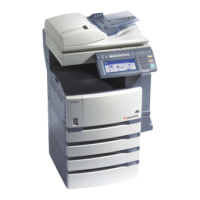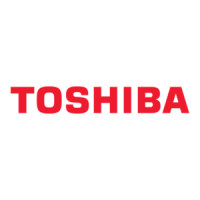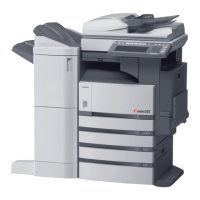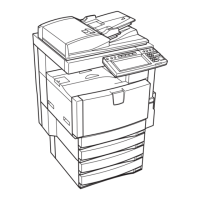Do you have a question about the Toshiba e-STUDIO353 and is the answer not in the manual?
| Functions | Print, Copy, Scan, Fax |
|---|---|
| Print Speed (Black) | 35 ppm |
| Print Resolution | 1200 x 1200 dpi |
| Copy Speed | 35 cpm |
| Copy Resolution | 600 x 600 dpi |
| Scan Resolution | 600 x 600 dpi |
| Fax Speed | 33.6 kbps |
| Paper Capacity | 550 sheets |
| Duplex Printing | Yes |
| Connectivity | USB, Ethernet |
| Scanner Type | Flatbed, ADF |
| Display | LCD |
| Original Size | A3 |
| Hard Disk Drive | Optional |
| Type | Laser |
| Operating System Compatibility | Windows, macOS, Linux |











